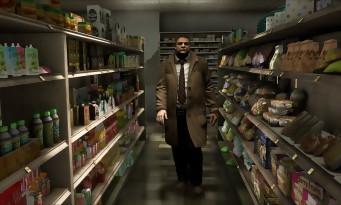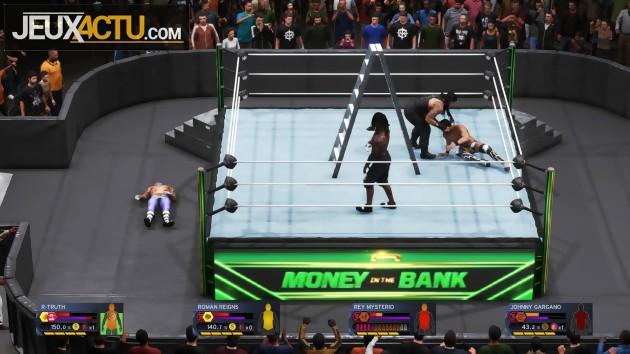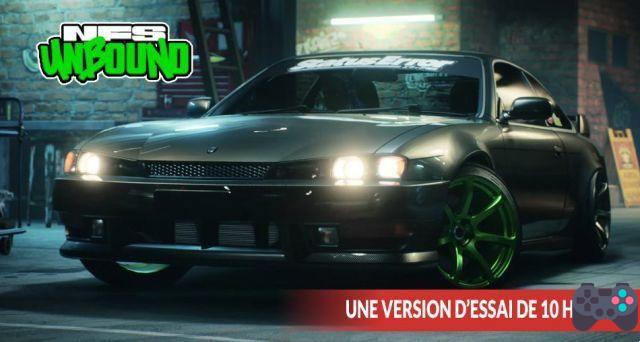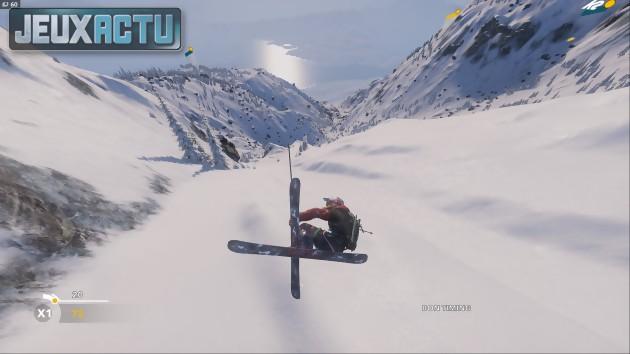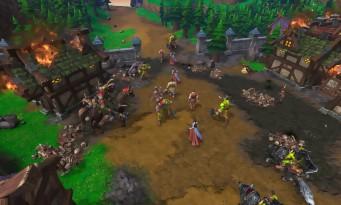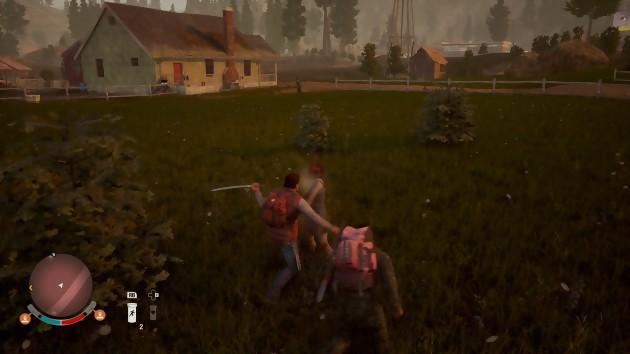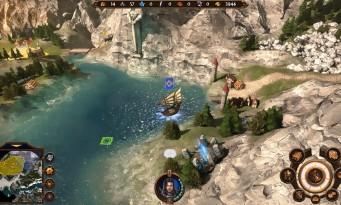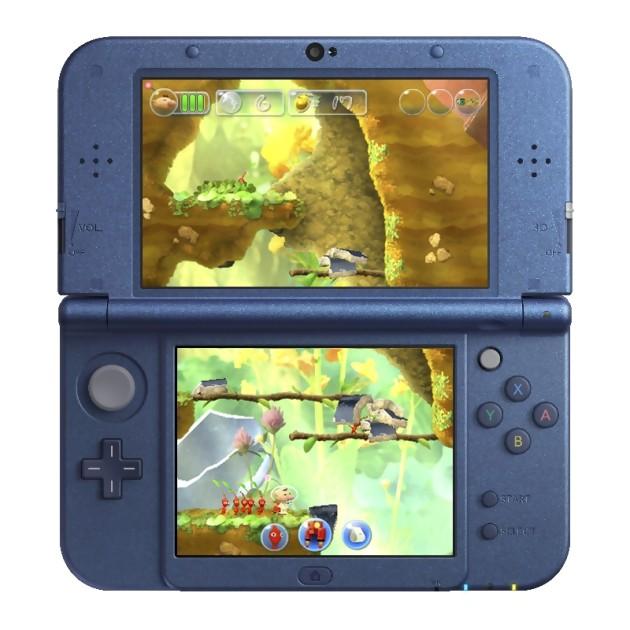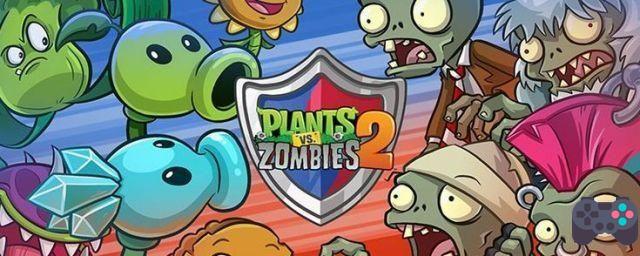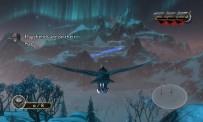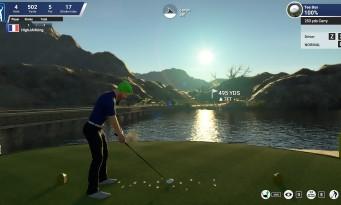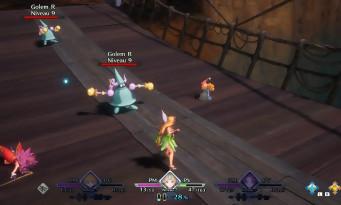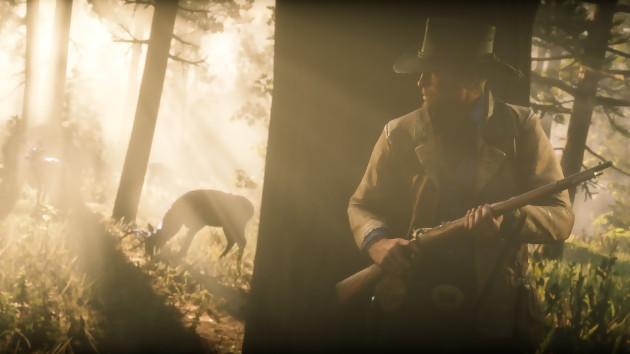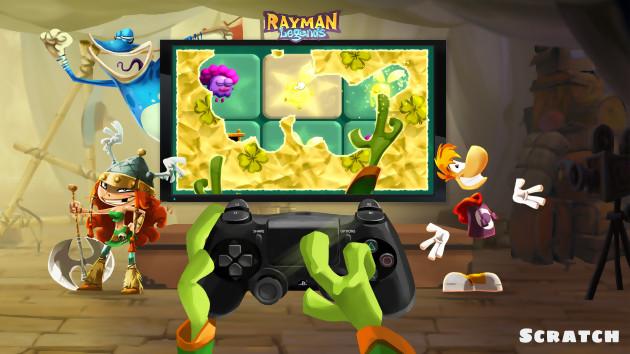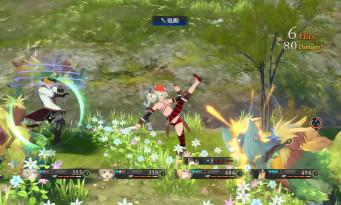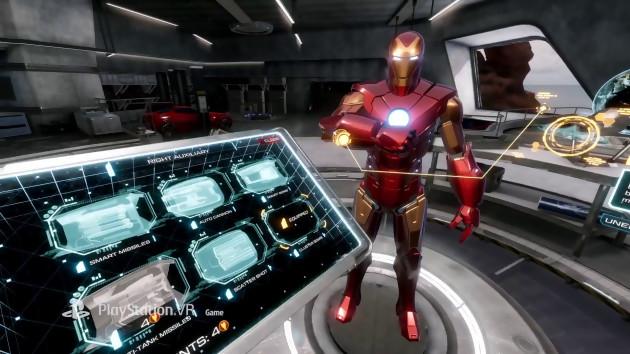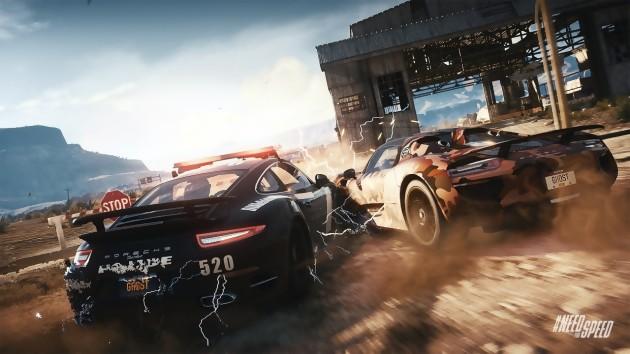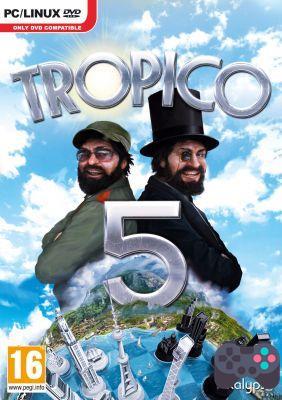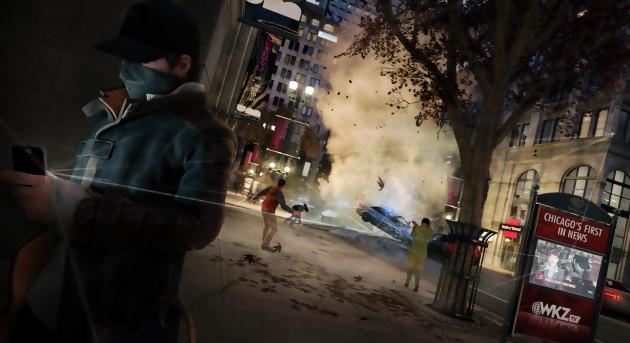 Thursday, June 7, 2012. E3 has just closed its doors. The entire video game industry is in turmoil and has only one game in mind: Watch Dogs. Unveiled with great fanfare on the stage of the Orpheum Theater in Los Angeles during the Ubisoft press conference, the title not only inflicted a real technical slap, thus crystallizing all the hopes based on the next gen ', but also seemed to have given a facelift to open world games, with a staging worthy of the greatest Third Person Shooter of our generation. Sold later as the spearhead of the eighth generation consoles, Watch Dogs was to be part of the launch titles for the PS4 and Xbox One, despite some unwanted leaks which threw the graphics quality into doubt. However confident, Ubisoft is reviving interest around its game, going downright to titillate its class neighbour: the great GTA V. "Two months are enough to visit Los Santos" chants a prospectus orchestrated by the marketing department of Ubisoft. The message sent to Rockstar Games by the French publisher could not be clearer: Watch Dogs is coming and it will smash everything!
Thursday, June 7, 2012. E3 has just closed its doors. The entire video game industry is in turmoil and has only one game in mind: Watch Dogs. Unveiled with great fanfare on the stage of the Orpheum Theater in Los Angeles during the Ubisoft press conference, the title not only inflicted a real technical slap, thus crystallizing all the hopes based on the next gen ', but also seemed to have given a facelift to open world games, with a staging worthy of the greatest Third Person Shooter of our generation. Sold later as the spearhead of the eighth generation consoles, Watch Dogs was to be part of the launch titles for the PS4 and Xbox One, despite some unwanted leaks which threw the graphics quality into doubt. However confident, Ubisoft is reviving interest around its game, going downright to titillate its class neighbour: the great GTA V. "Two months are enough to visit Los Santos" chants a prospectus orchestrated by the marketing department of Ubisoft. The message sent to Rockstar Games by the French publisher could not be clearer: Watch Dogs is coming and it will smash everything!
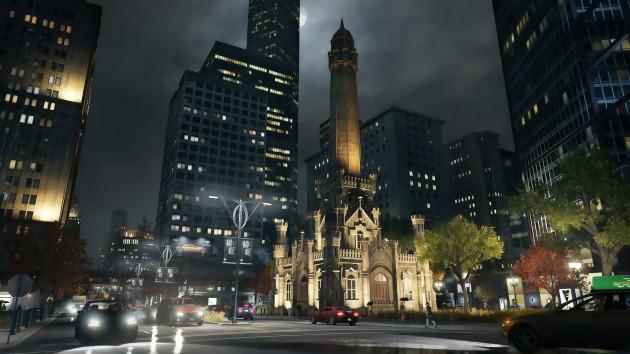 Unfortunately, this confidence boost will be short-lived as just days after this wink (or taunt, call it what you like), Ubisoft is swallowing its pride and announcing the postponement of its game of, hold on tight. , 6 months ! A curiously long additional gestation time for a game that was supposed to rock the house and launch the next gen like never before. In order not to arouse the suspicions of the players, the reasons given for this delay in the calendar are the desire to refine the title as well as possible to make it a unique and memorable experience. Classic. But it was then that new doubts began to settle, that other videos revealed negative points hitherto unknown to the general public. Would Watch Dogs be less impressive than expected? Can the demos made in 2012 and 2013 really run on our next gen consoles? The more time passes, the more tongues loosen, and today, it's time to set the record straight.
Unfortunately, this confidence boost will be short-lived as just days after this wink (or taunt, call it what you like), Ubisoft is swallowing its pride and announcing the postponement of its game of, hold on tight. , 6 months ! A curiously long additional gestation time for a game that was supposed to rock the house and launch the next gen like never before. In order not to arouse the suspicions of the players, the reasons given for this delay in the calendar are the desire to refine the title as well as possible to make it a unique and memorable experience. Classic. But it was then that new doubts began to settle, that other videos revealed negative points hitherto unknown to the general public. Would Watch Dogs be less impressive than expected? Can the demos made in 2012 and 2013 really run on our next gen consoles? The more time passes, the more tongues loosen, and today, it's time to set the record straight.
poker face
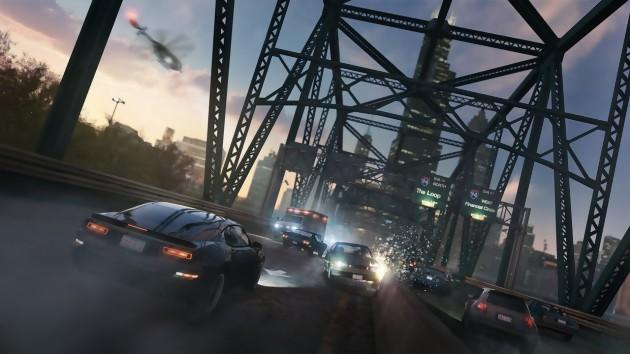 Whether we play it on PS4 or Xbox One, Watch Dogs is unfortunately not the graphic slap we were promised at E3 2012. Jonathan Morin, the game's Creative Director, may certify on Twitter that you have to have a top-of-the-range PC and choose the Ultra configuration to benefit from the same rendering as two years ago, the rubbish does not fly with the air currents, the empty cans do not roll on the ground, there is no There's no smoke when you enter the nightclubs, the NPCs aren't as interactive as expected, the lighting effects are much less elaborate and the textures much less detailed. Technically quite uneven, Watch Dogs is mainly the victim of a crime of dirty mouth during the day, with completely empty alleys as soon as Aiden takes the wheel of a car or gets on a motorcycle. Fewer NPCs in the streets to keep a stable frame-rate, vehicles and passers-by popping up before our eyes within 20 meters: Ubisoft Montreal has made its choice. In fact, we have to wait until nightfall for Chicago to put on its best clothes and offer us a festival of lights that has charmed us more than once. The title gains even more visual quality during rainy days when you can revel in the reflections on the ground.
Whether we play it on PS4 or Xbox One, Watch Dogs is unfortunately not the graphic slap we were promised at E3 2012. Jonathan Morin, the game's Creative Director, may certify on Twitter that you have to have a top-of-the-range PC and choose the Ultra configuration to benefit from the same rendering as two years ago, the rubbish does not fly with the air currents, the empty cans do not roll on the ground, there is no There's no smoke when you enter the nightclubs, the NPCs aren't as interactive as expected, the lighting effects are much less elaborate and the textures much less detailed. Technically quite uneven, Watch Dogs is mainly the victim of a crime of dirty mouth during the day, with completely empty alleys as soon as Aiden takes the wheel of a car or gets on a motorcycle. Fewer NPCs in the streets to keep a stable frame-rate, vehicles and passers-by popping up before our eyes within 20 meters: Ubisoft Montreal has made its choice. In fact, we have to wait until nightfall for Chicago to put on its best clothes and offer us a festival of lights that has charmed us more than once. The title gains even more visual quality during rainy days when you can revel in the reflections on the ground.
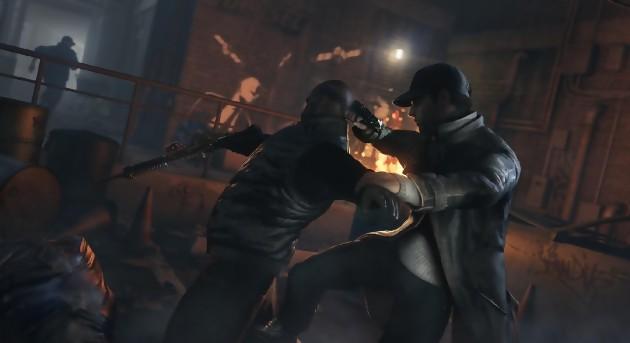 On the other hand, there is a detail specific to the next gen today and which Watch Dogs uses and abuses up to certain grotesque situations: it is the use of the wind. In the game, you will often see Aiden's coat, open at the bottom, floating in the air currents or when he crosses Chicago at high speed on the handlebars of a motorcycle. The kind of details that please the eye, especially since the flora is also subject to the breezes with the back and forth movement of the foliage of trees and plants. Even indoor plants, although sheltered from the weather, are subject to the same weather. LOU. Nothing shocking for an open world game, except that Watch Dogs tends to multiply errors of this type. By car, you almost always pass through shrubs, and you just have to stand near a cash machine with people queuing to cross their bodies. Collision bugs not so numerous we reassure you, but coarse enough for us to align these few lines in this paper.
On the other hand, there is a detail specific to the next gen today and which Watch Dogs uses and abuses up to certain grotesque situations: it is the use of the wind. In the game, you will often see Aiden's coat, open at the bottom, floating in the air currents or when he crosses Chicago at high speed on the handlebars of a motorcycle. The kind of details that please the eye, especially since the flora is also subject to the breezes with the back and forth movement of the foliage of trees and plants. Even indoor plants, although sheltered from the weather, are subject to the same weather. LOU. Nothing shocking for an open world game, except that Watch Dogs tends to multiply errors of this type. By car, you almost always pass through shrubs, and you just have to stand near a cash machine with people queuing to cross their bodies. Collision bugs not so numerous we reassure you, but coarse enough for us to align these few lines in this paper.
...at no time has our hero managed to move us for a single moment [...] In the end, it is these secondary characters who steal the show from our budding pirate.
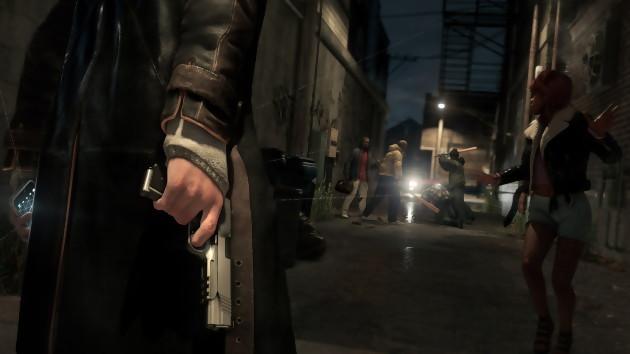 Anyway, technically speaking, there was a graphic downgrade which unfortunately works against Watch Dogs. You just have to stick a second screen next to it with GTA 5 running on PS3 to realize that the Rockstar Games title really has nothing to be ashamed of in the face of Watch Dogs, which was nevertheless developed on the generation of upper brackets. But where Ubisoft's game suffers from the comparison with the master of the open world, it's on the side of the atmosphere that emerges from Chicago. Cold, without a real soul and ultimately quite small, the city is ultimately like the screenplay: nondescript. It must be said that Ubisoft has accustomed us to better in terms of history and narration. We don't know if it's Aiden Pearce's almost non-existent charisma or his habit of mumbling into his scarf that prevents us from falling in love with his sad fate (he leaves to avenge the death of his niece Lena, who died in a car), but at no time did our hero manage to move us for a single moment. That being said, his entire family is genuinely lacking in personality, whether it's his sister Nicky or his nephew Jackson, they're as transparent as he is. It is all the more regrettable that the rest of the protagonists have, on the contrary, the mouth of the job. Special mention for Dermot "Lucky" Quinn, whose interpretation makes him the villain whose face you really want to beat up, while T-Bone, Aiden's sidekick, seduces with his rebel look. In the end, it is these secondary characters who steal the show from our budding pirate.
Anyway, technically speaking, there was a graphic downgrade which unfortunately works against Watch Dogs. You just have to stick a second screen next to it with GTA 5 running on PS3 to realize that the Rockstar Games title really has nothing to be ashamed of in the face of Watch Dogs, which was nevertheless developed on the generation of upper brackets. But where Ubisoft's game suffers from the comparison with the master of the open world, it's on the side of the atmosphere that emerges from Chicago. Cold, without a real soul and ultimately quite small, the city is ultimately like the screenplay: nondescript. It must be said that Ubisoft has accustomed us to better in terms of history and narration. We don't know if it's Aiden Pearce's almost non-existent charisma or his habit of mumbling into his scarf that prevents us from falling in love with his sad fate (he leaves to avenge the death of his niece Lena, who died in a car), but at no time did our hero manage to move us for a single moment. That being said, his entire family is genuinely lacking in personality, whether it's his sister Nicky or his nephew Jackson, they're as transparent as he is. It is all the more regrettable that the rest of the protagonists have, on the contrary, the mouth of the job. Special mention for Dermot "Lucky" Quinn, whose interpretation makes him the villain whose face you really want to beat up, while T-Bone, Aiden's sidekick, seduces with his rebel look. In the end, it is these secondary characters who steal the show from our budding pirate.
Never without my smartphone
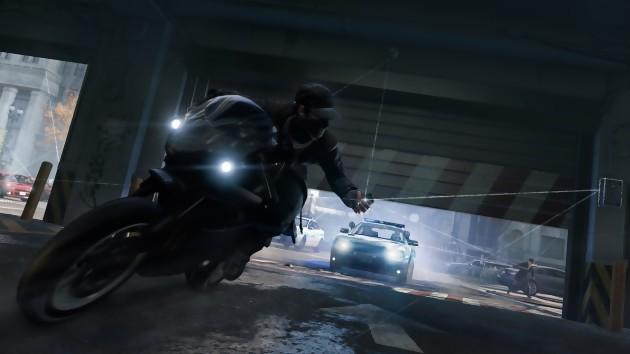 If the screenwriter has clearly missed the mark, the developers have managed, on the other hand, to offer gameplay that holds up quite well. In this case, Ubisoft called on its expertise by reusing ingredients that have already proven themselves in other in-house productions. As a result, we end up with a game that skillfully mixes action, infiltration and hacking, and the latter has been presented as the cornerstone of Watch Dogs. In this regard, Ubisoft didn't lie and using Aiden's smartphone (here called the Profiler) will be a great help, both during missions and when wandering around in the freeroam. All you have to do is turn on the phone to have immediate access to dozens of data that pass through the screen via a dialogue screen in order to get to know the people around us better. Last name, first name, age, profession, banking situation and even small, often amusing anecdotes, here are roughly the data that can be recovered from your phone. It will even be possible to act with some of them (at the whim of the game) for example to intercept a chat by SMS, listen to a conversation or outright divert money from his account. The idea is really nice, even if the deluge of information that explodes in our mouths sometimes pushes us to turn off the phone, in order to regain visual serenity.
If the screenwriter has clearly missed the mark, the developers have managed, on the other hand, to offer gameplay that holds up quite well. In this case, Ubisoft called on its expertise by reusing ingredients that have already proven themselves in other in-house productions. As a result, we end up with a game that skillfully mixes action, infiltration and hacking, and the latter has been presented as the cornerstone of Watch Dogs. In this regard, Ubisoft didn't lie and using Aiden's smartphone (here called the Profiler) will be a great help, both during missions and when wandering around in the freeroam. All you have to do is turn on the phone to have immediate access to dozens of data that pass through the screen via a dialogue screen in order to get to know the people around us better. Last name, first name, age, profession, banking situation and even small, often amusing anecdotes, here are roughly the data that can be recovered from your phone. It will even be possible to act with some of them (at the whim of the game) for example to intercept a chat by SMS, listen to a conversation or outright divert money from his account. The idea is really nice, even if the deluge of information that explodes in our mouths sometimes pushes us to turn off the phone, in order to regain visual serenity.
If the screenwriter has clearly missed the mark, the developers have managed, on the other hand, to offer gameplay that holds up quite well.
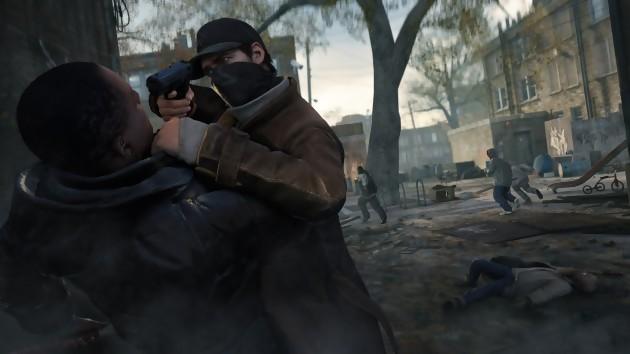 But the Profiler is not limited to spying on the life of the citizens of Chicago, it also makes it possible to give a nice finger of honor to ctOS, this company which owns all the electronic networks of Chicago, so much so that it holds the city by his two balls. It is also through his rebellious act that Aiden intends to assert his desire for revenge. Our masked hero can in fact hack into any camera in the city and thus gain access to previously inaccessible areas. The use of the smartphone has also been very well integrated into the gameplay, so much so that it is difficult to do without it, especially if you like to play it stealthy. Those who like missions where you have to tiptoe are likely to be delighted, Watch Dogs being made up of 70% of missions in infiltration. Of course, at any time, you can pull out your gun and shoot into the crowd, but the developers have made sure that infiltration pays off more than frontal violence. And we are not necessarily talking about the AI which is completely strawberries, which gives rise to situations that are also grotesque. In reality, each enemy has a degree of suspicion that is displayed on the screen by means of an exclamation point, which is reminiscent of the Metal Gear Solid series. But here it is, all you have to do is disappear from his field of vision for the sentry to go back to his business. Worse, thanks to the silent pistol, it is possible to eliminate anyone without ever arousing the suspicions of the other guards, even if the latter have seen their colleagues die after two fights between the two eyes. The enemies are therefore showing a rather alarming laxity, as if the developers had wanted to favor the discreet approach.
But the Profiler is not limited to spying on the life of the citizens of Chicago, it also makes it possible to give a nice finger of honor to ctOS, this company which owns all the electronic networks of Chicago, so much so that it holds the city by his two balls. It is also through his rebellious act that Aiden intends to assert his desire for revenge. Our masked hero can in fact hack into any camera in the city and thus gain access to previously inaccessible areas. The use of the smartphone has also been very well integrated into the gameplay, so much so that it is difficult to do without it, especially if you like to play it stealthy. Those who like missions where you have to tiptoe are likely to be delighted, Watch Dogs being made up of 70% of missions in infiltration. Of course, at any time, you can pull out your gun and shoot into the crowd, but the developers have made sure that infiltration pays off more than frontal violence. And we are not necessarily talking about the AI which is completely strawberries, which gives rise to situations that are also grotesque. In reality, each enemy has a degree of suspicion that is displayed on the screen by means of an exclamation point, which is reminiscent of the Metal Gear Solid series. But here it is, all you have to do is disappear from his field of vision for the sentry to go back to his business. Worse, thanks to the silent pistol, it is possible to eliminate anyone without ever arousing the suspicions of the other guards, even if the latter have seen their colleagues die after two fights between the two eyes. The enemies are therefore showing a rather alarming laxity, as if the developers had wanted to favor the discreet approach.
Money can not buy happiness
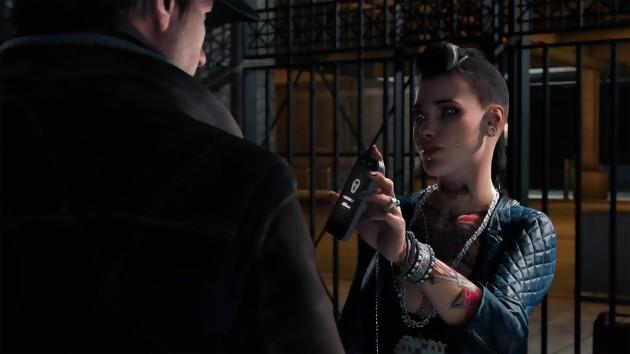 On the other hand, Aiden has such a sizeable arsenal that it's a shame not to let the powder do the talking. Not only can our vigilante pick up enemy weapons near their corpse, but he can also accumulate them with him. Speaking of which, it's a shame the developers went for this generous approach, because in the end there's very little point in going to an armory. Not to mention that getting the money is truly child's play, Aiden Pearce being able with a simple click on his phone to embezzle the money of the inhabitants of Chicago or hack the ATMs of the city as he sees fit. Going back to the war toys, Watch Dogs is really generous with the players, and you can have fun with small arms as well as larger guns, capable of breaking a bank. Special mention also to fragmentation grenades and sticky bombs – which must be taken care to manufacture in the same way as in The Last of Us – which do considerable damage and which are very useful for getting rid of vermin or law enforcement.
On the other hand, Aiden has such a sizeable arsenal that it's a shame not to let the powder do the talking. Not only can our vigilante pick up enemy weapons near their corpse, but he can also accumulate them with him. Speaking of which, it's a shame the developers went for this generous approach, because in the end there's very little point in going to an armory. Not to mention that getting the money is truly child's play, Aiden Pearce being able with a simple click on his phone to embezzle the money of the inhabitants of Chicago or hack the ATMs of the city as he sees fit. Going back to the war toys, Watch Dogs is really generous with the players, and you can have fun with small arms as well as larger guns, capable of breaking a bank. Special mention also to fragmentation grenades and sticky bombs – which must be taken care to manufacture in the same way as in The Last of Us – which do considerable damage and which are very useful for getting rid of vermin or law enforcement.
It's all the more enjoyable as the gunfight system is one of the best implemented in an open world. Aiden takes cover very easily and can interact with the surrounding elements at any time.
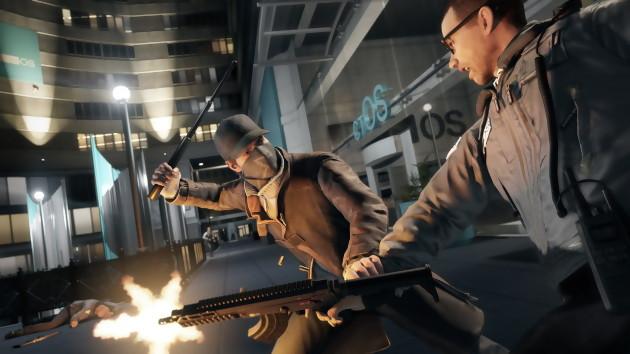 It's all the more enjoyable as the gunfight system is one of the best implemented in an open world. Aiden takes cover very easily and can interact with the surrounding elements at any time. He can very well change position, while remaining crouched, in order to avoid enemy fire, step over an obstacle (if necessary, if an enemy is in your line of sight, he will be put out of harm's way from automatically). On the other hand, never imagine seeing Aiden free a civilian from his car to tell him to take shelter during the shootings, this kind of situation will forever remain a pure fantasy and therefore a demo from E3 2012. Kind of like jumping which was deemed unnecessary by the development team, to the point that it was ousted from Aiden's physical skills. Yes, you read that right, our hacker is able to take control of an entire city with his cell phone of the future, but he can't jump, at least on his own. In fact, the player is obliged to get closer to an element of the decor to bring up a contextual action which will lead him to step over an obstacle. A rather questionable game design decision, especially in an open world where freedom of action is generally the leitmotif of the principle. That is.
It's all the more enjoyable as the gunfight system is one of the best implemented in an open world. Aiden takes cover very easily and can interact with the surrounding elements at any time. He can very well change position, while remaining crouched, in order to avoid enemy fire, step over an obstacle (if necessary, if an enemy is in your line of sight, he will be put out of harm's way from automatically). On the other hand, never imagine seeing Aiden free a civilian from his car to tell him to take shelter during the shootings, this kind of situation will forever remain a pure fantasy and therefore a demo from E3 2012. Kind of like jumping which was deemed unnecessary by the development team, to the point that it was ousted from Aiden's physical skills. Yes, you read that right, our hacker is able to take control of an entire city with his cell phone of the future, but he can't jump, at least on his own. In fact, the player is obliged to get closer to an element of the decor to bring up a contextual action which will lead him to step over an obstacle. A rather questionable game design decision, especially in an open world where freedom of action is generally the leitmotif of the principle. That is.
Connecting people ?
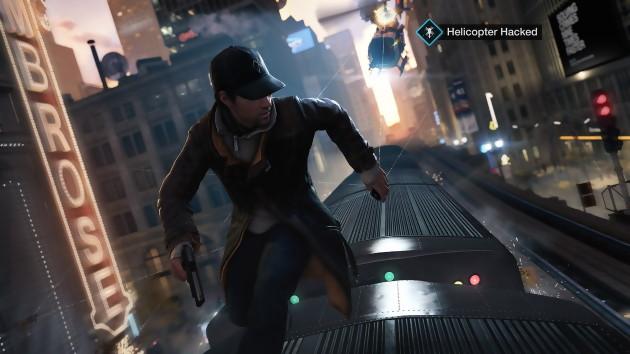 To compensate for this aberration, our hero can call on his Profiler, which is also quite useful in the middle of a fight, since it can be used to create a diversion by activating electronic devices or grenades from a distance. The kind of details that matter but above all that offer a truly original and different approach to other games of the same genre. If it's fun to use the smartphone to disrupt enemies, it's the same when getting behind the wheel of a vehicle since - as in the demos - Aiden can hack certain elements of traffic, provided you have unlocked the necessary skills in the skill tree. We thus take malicious pleasure in changing traffic lights to cause opportune accidents, to raise barriers, to erect portcullises, to open bridges in order to prevent access or even to burst pipes. Be careful though, it is not enough to trigger these actions to be sure to get rid of your attackers, it is often when a QTE appears on the screen (with the little stressful sound that goes with it) that you are certain to fly. Anyway, driving a car, it's the only option that is offered to the player, because once again, the game designers have taken a bias in game design that is likely to cringe: the decision not to integrate shooting during the driving phases. Hack or shoot, you have to decide.
To compensate for this aberration, our hero can call on his Profiler, which is also quite useful in the middle of a fight, since it can be used to create a diversion by activating electronic devices or grenades from a distance. The kind of details that matter but above all that offer a truly original and different approach to other games of the same genre. If it's fun to use the smartphone to disrupt enemies, it's the same when getting behind the wheel of a vehicle since - as in the demos - Aiden can hack certain elements of traffic, provided you have unlocked the necessary skills in the skill tree. We thus take malicious pleasure in changing traffic lights to cause opportune accidents, to raise barriers, to erect portcullises, to open bridges in order to prevent access or even to burst pipes. Be careful though, it is not enough to trigger these actions to be sure to get rid of your attackers, it is often when a QTE appears on the screen (with the little stressful sound that goes with it) that you are certain to fly. Anyway, driving a car, it's the only option that is offered to the player, because once again, the game designers have taken a bias in game design that is likely to cringe: the decision not to integrate shooting during the driving phases. Hack or shoot, you have to decide.
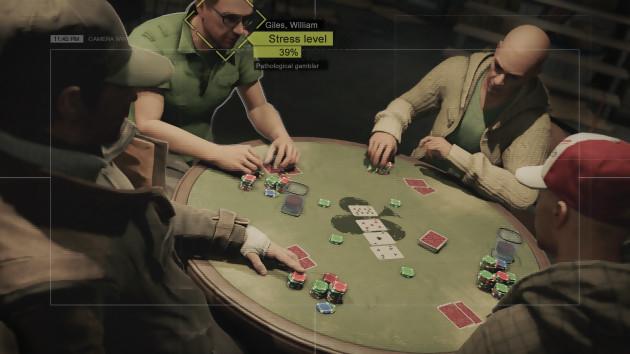 For once, if the opponents lack clairvoyance in infiltration, they take the hair of the beast when it comes to you. Escaping the police or even gangs is never an easy task, the latter arriving en masse and never hesitating to crash into you badly to destroy your vehicle. Fortunately, we can count on the very arcade management of the damage on the cars so as not to end up on foot. Because unlike GTA 5 which relied more on a certain realism, in Watch Dogs, you really have to want to blow up the engine of your car. There is also never a direct impact on driving, a boned vehicle rolling as well as if it came out of the garage. In short, you will have understood it, the steering is eyeing the side of the arcade with a rather particular grip at the start, but which ultimately reveals very good driving sensations. We obviously feel the expertise of the developers of Driver who have their noses in it. We also appreciate the cockpit view, which is really pleasant to drive, despite the fact that we have to deal with this permanent blur in the foreground. On the other hand, total flop concerning the piloting of two-wheelers, completely eccentric with the possibility of doing a wheel back without ever being afraid of falling. As for the boats, there is ultimately no point in using them, the sea areas being limited and no mission is offered for the pilots. As for the flying machines, Ubisoft preferred to put them aside and reserve them for the Police who will call on helicopters in case of great need.
For once, if the opponents lack clairvoyance in infiltration, they take the hair of the beast when it comes to you. Escaping the police or even gangs is never an easy task, the latter arriving en masse and never hesitating to crash into you badly to destroy your vehicle. Fortunately, we can count on the very arcade management of the damage on the cars so as not to end up on foot. Because unlike GTA 5 which relied more on a certain realism, in Watch Dogs, you really have to want to blow up the engine of your car. There is also never a direct impact on driving, a boned vehicle rolling as well as if it came out of the garage. In short, you will have understood it, the steering is eyeing the side of the arcade with a rather particular grip at the start, but which ultimately reveals very good driving sensations. We obviously feel the expertise of the developers of Driver who have their noses in it. We also appreciate the cockpit view, which is really pleasant to drive, despite the fact that we have to deal with this permanent blur in the foreground. On the other hand, total flop concerning the piloting of two-wheelers, completely eccentric with the possibility of doing a wheel back without ever being afraid of falling. As for the boats, there is ultimately no point in using them, the sea areas being limited and no mission is offered for the pilots. As for the flying machines, Ubisoft preferred to put them aside and reserve them for the Police who will call on helicopters in case of great need.
If Watch Dogs is quite frustrating in the details and some game design choices, it reveals great qualities as a whole.
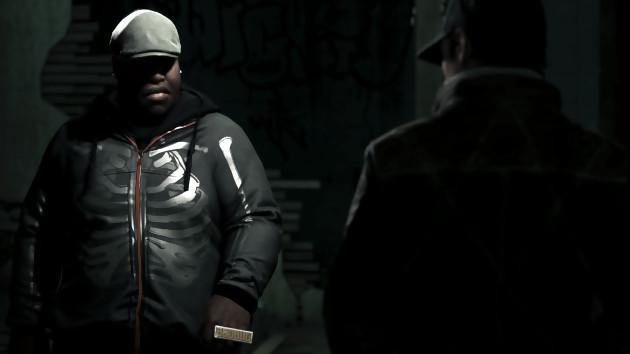 If Watch Dogs is quite frustrating in the details and some game design choices, it reveals great qualities as a whole. If it takes less than 15 hours to complete the 40 missions of the main story, the game is full of side missions which aim to take us through Chicago, nevertheless accessible in its entirety from the start. Some districts are unlocked over the course of the adventure, but it is above all the map that we make accessible in truth. Thanks to the Profiler, Aiden can thus anticipate crimes, offering him the possibility of shadowing a specific person. Should he stop this pickpocketing or physical assault knowing that the victim is not that innocent? The player is free to act, but be aware that your popularity rating depends on the actions you have taken in the game. If you like playing bastards, be sure that with each car theft, a phone call will be switched to 911 for example.
If Watch Dogs is quite frustrating in the details and some game design choices, it reveals great qualities as a whole. If it takes less than 15 hours to complete the 40 missions of the main story, the game is full of side missions which aim to take us through Chicago, nevertheless accessible in its entirety from the start. Some districts are unlocked over the course of the adventure, but it is above all the map that we make accessible in truth. Thanks to the Profiler, Aiden can thus anticipate crimes, offering him the possibility of shadowing a specific person. Should he stop this pickpocketing or physical assault knowing that the victim is not that innocent? The player is free to act, but be aware that your popularity rating depends on the actions you have taken in the game. If you like playing bastards, be sure that with each car theft, a phone call will be switched to 911 for example.
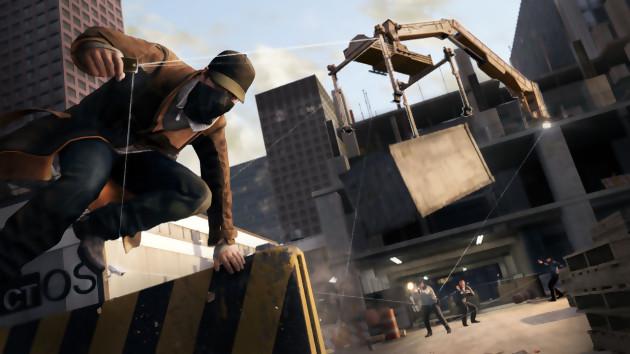 Watch Dogs is therefore full of side quests, often interesting, sometimes repetitive, but also mini-games represented by acid trips after having swallowed what it takes as a drug to totally hallucinate. Sometimes we will be asked to eliminate aliens from elsewhere, sometimes we will have fun jumping from flower to flower and sometimes we can take control of a mechanical spider to get rid of the cops who are shooting at us. Mini-games that seem to have been telescoped at the last minute, just to add content. But if there is one aspect that Ubisoft can be proud of, it's the integration of the multiplayer mode into the main adventure. Indeed, at any time, it is possible to receive an invitation to have a small two-player hacking session, participate in a chase or a deathmatch for up to 8 lads, all in a few clicks. We then find ourselves catapulted into the playing area, with opponents who look like any citizen of Chicago. Not so easy to spot his enemies among the crowd and this is where it is necessary, once again, to involve the Profiler. You can also access the multiplayer mode more voluntarily via the menu of your smartphone. And overall, the idea for Ubisoft was to subtly introduce this multiplayer mode, which would have benefited from being more fleshed out. It is true that we go around it quite quickly, even if we suspect that the developers have kept some DLC to come under the elbow.
Watch Dogs is therefore full of side quests, often interesting, sometimes repetitive, but also mini-games represented by acid trips after having swallowed what it takes as a drug to totally hallucinate. Sometimes we will be asked to eliminate aliens from elsewhere, sometimes we will have fun jumping from flower to flower and sometimes we can take control of a mechanical spider to get rid of the cops who are shooting at us. Mini-games that seem to have been telescoped at the last minute, just to add content. But if there is one aspect that Ubisoft can be proud of, it's the integration of the multiplayer mode into the main adventure. Indeed, at any time, it is possible to receive an invitation to have a small two-player hacking session, participate in a chase or a deathmatch for up to 8 lads, all in a few clicks. We then find ourselves catapulted into the playing area, with opponents who look like any citizen of Chicago. Not so easy to spot his enemies among the crowd and this is where it is necessary, once again, to involve the Profiler. You can also access the multiplayer mode more voluntarily via the menu of your smartphone. And overall, the idea for Ubisoft was to subtly introduce this multiplayer mode, which would have benefited from being more fleshed out. It is true that we go around it quite quickly, even if we suspect that the developers have kept some DLC to come under the elbow.
But if there is one aspect that Ubisoft can be proud of, it's the subtle integration of the multiplayer mode into the main adventure.
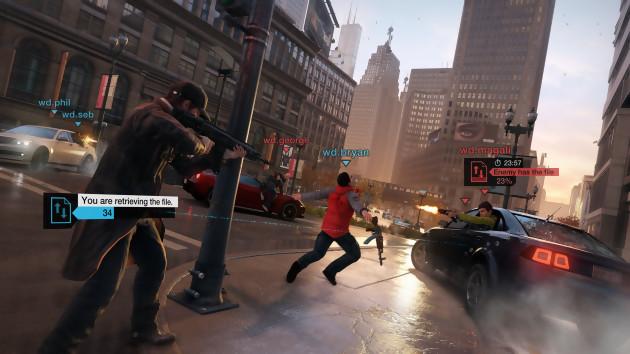 In any case, everything is done so that the player progresses Aiden's skill tree, which gains in skill as you obtain your precious skill points to distribute according to your desires. Would you rather become an ace pilot than perfect your mastery of firearms? No problem. A choice that is rectified no matter what happens over time, since in the end, the ultimate goal is to unlock all of Aiden's abilities. Finally, if the adventure starts with a lame leg, it manages to get on the right track over the missions and the good understanding of the gameplay. It's true, we would have liked Aiden's story to thrill us more and the pace to be more frantic, but for this first try, Ubisoft is providing the show to make it one of the most open worlds most credible of the moment, and one of the rare games to be able to truly stand up to GTA. This is perhaps the objective to achieve…
In any case, everything is done so that the player progresses Aiden's skill tree, which gains in skill as you obtain your precious skill points to distribute according to your desires. Would you rather become an ace pilot than perfect your mastery of firearms? No problem. A choice that is rectified no matter what happens over time, since in the end, the ultimate goal is to unlock all of Aiden's abilities. Finally, if the adventure starts with a lame leg, it manages to get on the right track over the missions and the good understanding of the gameplay. It's true, we would have liked Aiden's story to thrill us more and the pace to be more frantic, but for this first try, Ubisoft is providing the show to make it one of the most open worlds most credible of the moment, and one of the rare games to be able to truly stand up to GTA. This is perhaps the objective to achieve…




